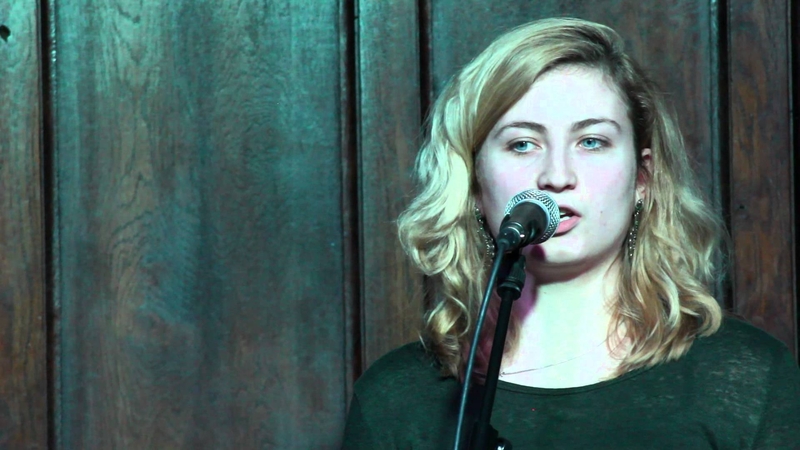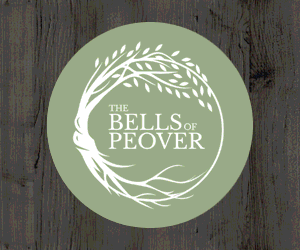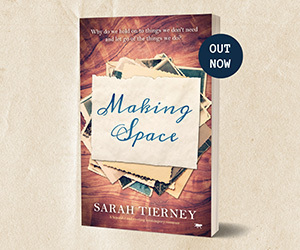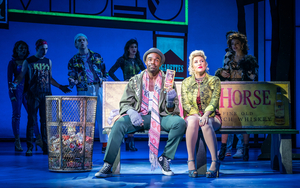Andrea Sandor finds demand is high for immersive storytelling in period homes, and for good reason
“There are loads of you!” Abi Hynes exclaimed as a small ocean of visitors flooded the drawing room of Elizabeth Gaskell’s house, arranging themselves in chairs, against the wall and on the floor. I was among the first to enter, impressed not only by the eighteenth century period room and the live piano music, but also by the balls of yarn draped across the furniture, winding along window sills, across tables, looped around candle sticks and trailing onto the floor. Beside the fire place was a young woman, playing with a ball of yarn in her hands, her eyes growing slightly wider as we swallowed up the room around her.
Welcome to Manchester After Hours at the house of Elizabeth Gaskell, author of Mary Barton and North and South. Live literature organisation Bad Language had taken over the house for the night, only to be overwhelmed by the number of visitors. Following Abi Hynes’ performance, we were split into two groups because the smaller rooms simply couldn’t accommodate all of us. Henry Gaskell’s study, where Benjamin Judge performed, could hardly fit the smaller groups, making me wonder whether the room has ever had so many visitors.
Writer extraordinaire Abi Hynes started the evening off, explaining that she had written a piece inspired by the forceful, domineering Mrs. Thornton - the mother of John Thornton in North and South. But she said the Gaskell house had other plans. Overwhelmed by the presence of Mrs Thornton in the drawing room, Hynes threw out her script and started anew. The result took the form of short monologues from the perspective of Margaret Hale, heroine of North and South; written on pieces of paper hidden within the balls of yarn scattered around the room. Audience members found the crumpled pieces of paper and tossed them to Hynes in turn, who raised her head, grew in stature and revealed the inner thoughts of a young newlywed now living with her domineering mother-in-law.
Hynes’ performance was the most intimately connected to the Gaskell House: demonstrating what unique experience can be achieved when a talented writer, well versed in the time period and literature, performs in the appropriate period setting. Immersion was most successfully achieved here with Margaret Hale musing on her life in just the sort of drawing room you would have found her in.

Next up for my group was award-winning writer Rosie Garland treating the audience to a surprise world premiere of a passage from her new book, out later this year. The passage she read was from the perspective of a young woman working at a telegraph office in Manchester in the early 1900s. Garland’s language and command of her audience were exceptional, delivering us into the world of a girl inhaling soot and exhaling ecstasy, having escaped her family and achieved independence.
Listening to Garland’s words in Elizabeth Gaskell’s dining room made me feel like a wealthy Victorian, listening to the plight of a poor working class girl and feeling humbled by her grace. But her words took me outside the house and up Oxford Road, delivering me to a Manchester billowing smoke. The performance would have been enhanced had it been performed in the sort of boarding house the character lived in, or on the street, rather than in the plush surroundings of Victorian wealth. Otherwise, Garland’s performance was undoubtedly a highlight of the evening.
Fat Roland and Benjamin Judge’s performances went in for laughs, inspired by the surroundings but taking an irreverent and light approach. You had the sense that neither knew very much about Elizabeth Gaskell, her house or the time period and instead used the house as a spring board to entertain their own whimsical imaginations. For Roland this was a short story in which Gaskell impresses her husband by writing the word ‘The’, while Judge read love letters exchanged between Elizabeth and Henry Gaskell and recited a poem by the latter - about his sexual encounter with a canine...
Overall an excellent showing for the Gaskell House as a venue for promenade performance. I left feeling that we are just scratching the surface of immersive storytelling in a city with a history as rich as Manchester’s. May this not be the last.















